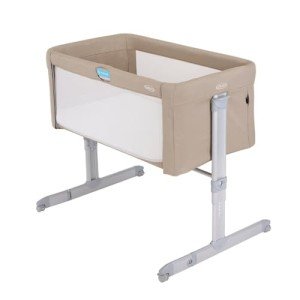What Is Baby Cots And How To Utilize It
The Ultimate Guide to Baby Cots: Choosing the Best for Your Little One
When it concerns preparing for a new arrival, picking the ideal baby cot is among the most important choices expectant parents will make. A baby cot serves not just as a location for the baby to sleep but also as a safe sanctuary where they can grow, explore, and develop. This guide delves into the different kinds of baby cots, essential considerations for choice, safety standards, and more, helping moms and dads navigate the myriad alternatives readily available.
Kinds Of Baby Cots
Selecting a baby cot includes comprehending the various types offered on the market. Each has its special functions and advantages that deal with various requirements and lifestyles:
Type of Cot
Description
Standard Cot
A traditional design with repaired sides, developed for long-term use until the kid shifts to a bed.
Portable Cot
Lightweight and retractable, perfect for travel or smaller home.
Crib
Usually smaller than a standard cot, designed particularly for infants.
Convertible Cot
A versatile option that can transform into a toddler bed, daybed, and even a full-size bed as the child grows.
Co-Sleeper
A bedside crib that connects to the moms and dads' bed, enabling simple nighttime access while keeping the baby safe.
Moses Basket
A light-weight, portable basket ideal for newborns, permitting easy movement from room to space.
Key Considerations When Choosing a Baby Cot
Selecting the right cot includes a number of considerations to ensure it meets safety requirements while likewise being practical for daily usage. Here are some crucial elements to keep in mind:
- Safety Standards: Ensure that the cot fulfills the safety policies set by your nation's requirements.
- Material: Look for non-toxic materials that will not seep hazardous chemicals into the baby's environment.
- Adjustable Height: Consider cots with adjustable bed mattress heights, which make it simpler to raise the baby in and out as they grow.
- Size: Make sure the cot fits easily in the designated space, allowing room for safe movement around it.
- Longevity: Opt for convertible cots that can transition as your kid grows, conserving both area and cash.
- Aesthetic Appeal: Select a design and color that matches your nursery style.
- Ease of Assembly: Review how complicated the assembly procedure is; some cots can be troublesome to assemble.
Safety Tips for Baby Cots
Ensuring the baby's safety while they sleep is critical. Here are vital safety tips for baby cots:
- Use a Firm Mattress: A company mattress that fits snugly in the cot decreases the threat of suffocation.
- Bedding: Keep soft bedding, pillows, and toys out of the cot to minimize the danger of Sudden Infant Death Syndrome (SIDS).
- Inspect for Gaps: Ensure that the side rails and bed mattress do not have spaces where the baby could get trapped.
- Stability: Confirm that the cot is strong and does not wobble or tilt when weight is applied.
- Routine Inspections: Frequently look for loose screws or broken parts that could pose hazards.
- Constantly Keep the Cot Away from Hazards: Position the cot far from windows, cords, and other potential security risks.
Additional Features to Consider
Beyond fundamental safety and performance, numerous contemporary baby cots come geared up with extra functions developed to boost usability and convenience:
- Mobiles: These can help soothe a baby and stimulate their visual development.
- Storage Options: Cots with built-in drawers or racks can assist with organization, keeping important items within reach.
- Convertibility: Look for cots that come with conversion packages for ultimate transformation into beds as your kid grows.
- Bed Mattress Height Adjustability: Adjusting the height of the mattress can accommodate various age and movement levels.
- Wheels for Mobility: Some cots come with locking wheels, permitting moms and dads to move them easily from space to room.
FAQs About Baby Cots
Q1: How long can a baby utilize a cot?
Most children can use a cot from birth up until they are approximately 2-3 years of ages, depending upon their size and the cot's weight limitation.
Q2: When should I shift my baby from a cot to a bed?
It is generally best to shift your child when they start to climb out of the cot or reach the weight limitation, generally around 2-3 years of age.
Q3: Is it safe to use second-hand baby cots?
Second-hand furnishings can be used, however it's essential to guarantee the cot meets present security standards and hasn't been recalled. Check for wear and tear and ensure it is complimentary from risks.
Q4: What are the very best materials for baby cots?
Choose cots made of hardwood or premium composite materials that are certified devoid of harmful substances.
Q5: Should I get a crib or a bassinet for a newborn?
A bassinet may be a much better short-term choice for babies as it is smaller sized and more portable, enabling close sleeping plans. However, a crib or cot is a long-lasting service as the baby grows.
Selecting the ideal baby cot is a substantial investment in your child's safety and comfort. By comprehending supplemental resources of cots available, key features to try to find, and necessary security procedures, parents can make informed decisions that deal with their household's requirements. Taking the time to select a suitable cot can promote a safe sleeping environment, granting peace of mind as they invite their brand-new addition into the world. Whether going with a standard cot, a portable alternative, or a stylish co-sleeper, making sure safety, quality, and practicality will result in many serene nights ahead for both parents and baby.
